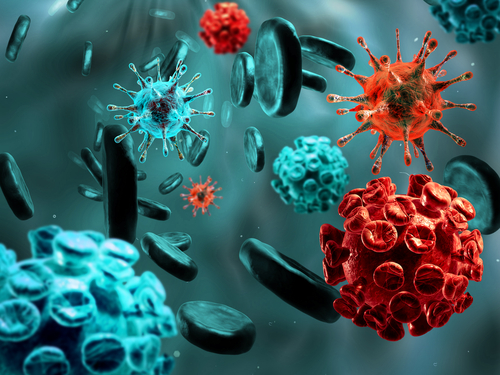A new study entitled “Macrophages and Dendritic Cells as Actors in the Immune Reaction of Classical Hodgkin Lymphoma”, published in PLOS One, assessed the role of macrophages and dendritic cells in the progression of Hodgkin’s lymphoma.
The majority of Hodgkin’s lymphomas affects B cells, a type of immune cell that functions mainly by producing and secreting antibodies into the circulation to bind pathogens’ antigens. In Hodgkin’s lymphoma, B cells develop a mutation in their DNA leading to the accumulation of a large number of oversized, abnormal B cells in the lymphatic system. The classical Hodgkin’s lymphoma (cHL) is the most common type of this tumor.
In cHL a small number of malignant Hodgkin-Reed-Sternberg (HRS) cells are surrounded by an abundant inflammatory infiltrate that plays a pivotal role in this type of tumour. In this type of lymphoma the tumour-associated macrophages (TAM) predominate among the tumor-infiltrating antigen-presenting cells (APC). Myeloid dendritic cells (mDC) are found in different malignancies and there are evidences that plasmacytoid DC (pDC) have a tolerogenic intra-tumoral function.
Modulating the polarization of intra-tumoral macrophages (MΦ) found abundantly in HL may be a strategy for immune evasion by the tumor. It has been suggested that the tumor may lead to the polarization of intra-tumoral macrophages to an anti-inflammatory phenotype characterized by low cytotoxicity and expression of inflammatory cytokines. Tumor-associated macrophages (TAM) and tumor cells produce various factors including IL10, TGFβ, TNFα, PGE2 and IL1 known to induce several process that promote tumor development. In several cancer studies it has been shown that excessive incidence of TAMs was a poor prognostic factor.
The research team investigated the role of mDC and MΦ in cHL cases by analysing their distribution and impact on outcome as well as the intra-tumoral cytokine profile to understand their role in cHL. Overall, the researchers found that mature myeloid (m) DC and MΦ are the main cellular components of tissue infiltrates in cHL. In particular, high numbers of CD83+ mDC and low numbers of CD163+ MΦ were associated with improved disease specific survival.
Overall, these findings suggest that intra-tumoral macrophages promote immune evasion in cHL by an immunomodulatory mechanism while mature DC seem to be involved in anti-tumoral immunity.


